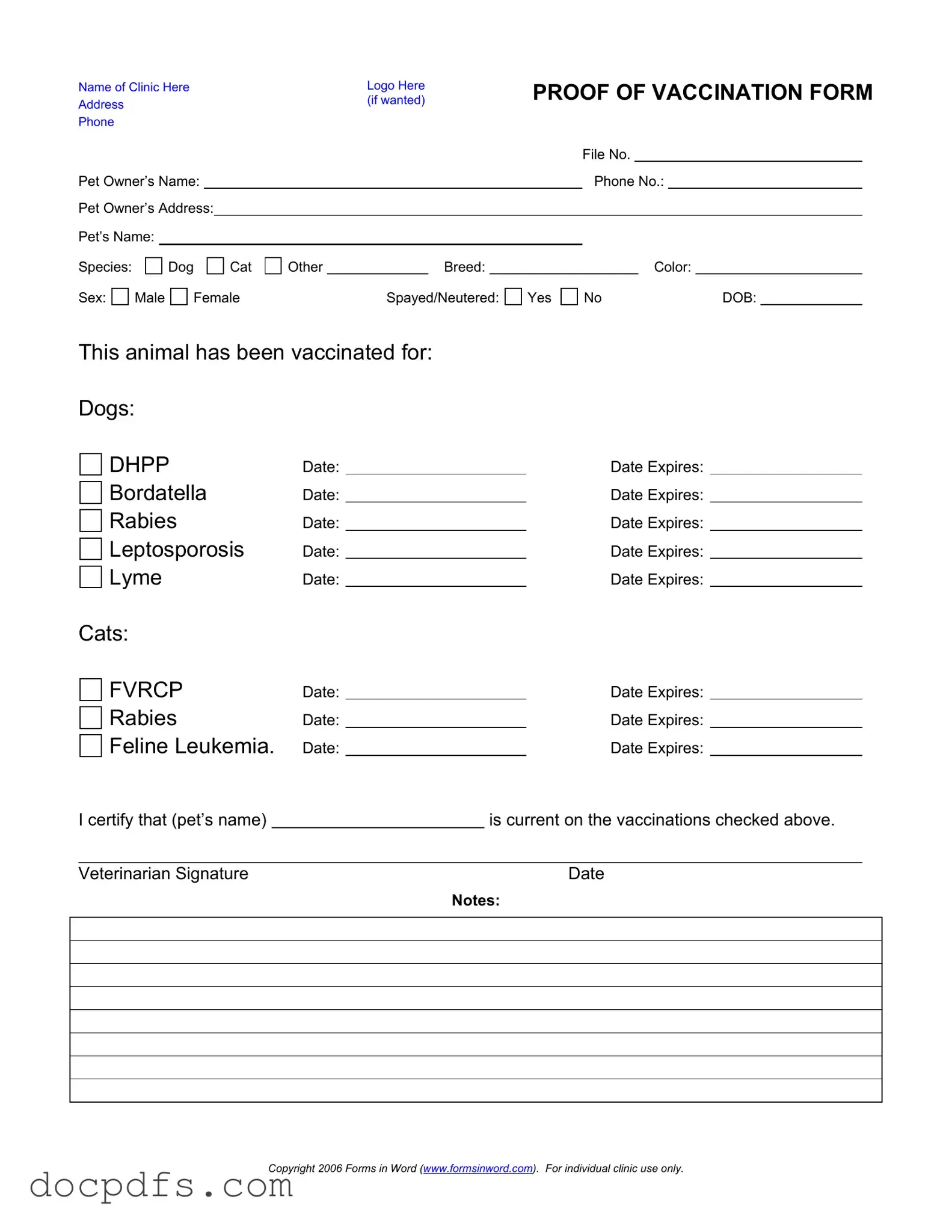Proof Of Vaccination Dog Template in PDF
The Proof of Vaccination Dog form is an essential document that confirms a dog has received its required vaccinations. This form typically includes details such as the pet owner's information, the dog's name and breed, and a list of vaccinations administered. Keeping this form updated is crucial for your pet's health and compliance with local regulations.
Open Proof Of Vaccination Dog Editor Now

Proof Of Vaccination Dog Template in PDF
Open Proof Of Vaccination Dog Editor Now

Open Proof Of Vaccination Dog Editor Now
or
⇓ Proof Of Vaccination Dog
Finish this form the fast way
Complete Proof Of Vaccination Dog online with a smooth editing experience.